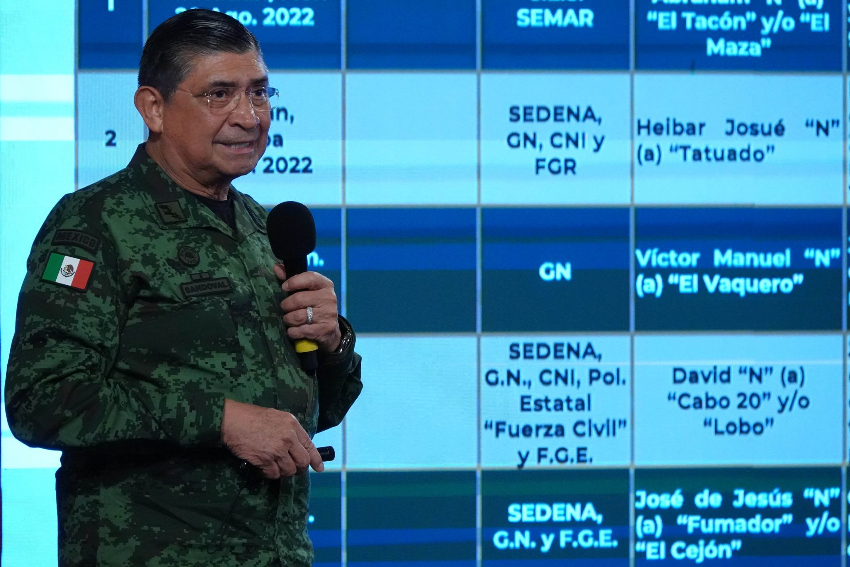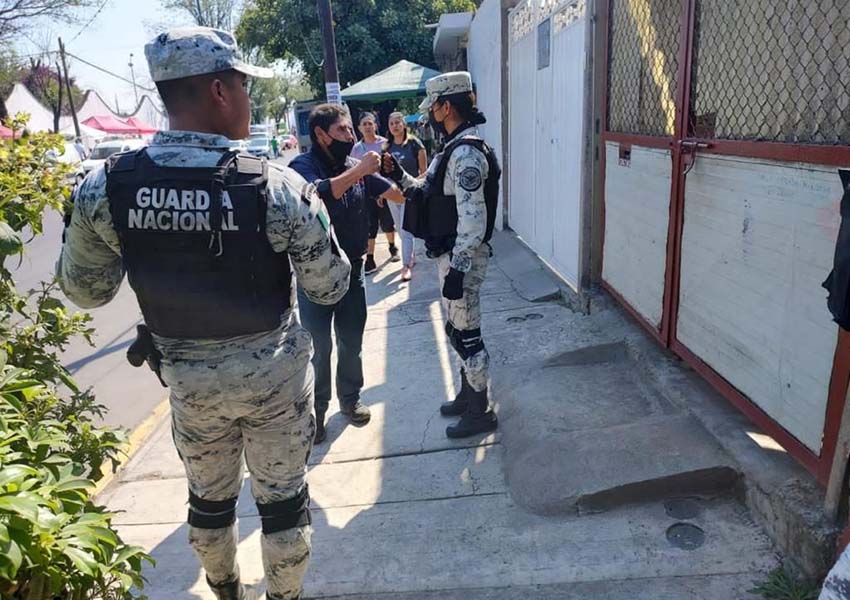You have to hand it to those Guacamaya hackers, whoever they are. They knew exactly which government body to go after and precisely when to release their plunder.
The millions of exposed Defense Ministry (Sedena) documents you’ve been hearing so much about come at a time when the military is taking control of domestic law enforcement at the federal level.
That radical changing of the guard needed no hack to become known; the administration has promoted the move proudly, and federal lawmakers have gone along with it.
But now we have cold, hard documents exposing just what kind of organization we’re talking about.

Confirmed are all the ongoing suspicions of sexual abuse, domestic spying, corruption, protection of lawbreaking military members and tracking of civilian government officials, including the U.S. ambassador.
No doubt, plenty more irregularities remain to be uncovered from the trove of documents still incompletely sifted.
And that’s not the worst of it. After all, that list of sins hardly comes as a surprise. What’s new is the hitherto unsuspected reach of military incursion into civilian life. Indeed, it’s not unreasonable to suspect that President López Obrador (AMLO) is handing over an outsized chunk of privilege to the military.
The Defense Ministry certainly thinks so, and delights in it. A telling quote culled by the press from a July 2021 Sedena document boasts that the president “has placed his trust in the armed forces to materialize some of the projects that will define the course of the nation.”

I’m not aware of any polls on the topic, but it’s a good bet that most people in Mexico don’t want the military to “define the course of the nation.”
However, we may have to get used to it. It’s already taken for granted that Sedena has leap-frogged over the Interior Ministry as the top entity in the executive branch, that is, the one closest to AMLO’s ear.
Perhaps not coincidentally, according to the New York Times, Sedena officials have accused Interior Minister Adán Augusto López, who is considered a possible 2024 presidential candidate, of hiring narco-related underlings when he was governor of Tabasco.
Palace intrigue, a la mexicana.
Beyond the political, we’re looking at the beginning of inroads by the military into the national economy. When AMLO put the army in charge of building a new international airport to serve Mexico City and a major rail line around the Yucatán Peninsula, it seemed unusual but hardly unprecedented.
In the U.S., for example, the Army Corps of Engineers has been constructing major public works projects almost since the dawn of that republic.
But now we find out that the Mexican military has not only built the airport but also plans to create and operate a commercial passenger airline to use it. That is unprecedented.
One’s initial reaction is bafflement: why in the world is the army planning to run an airline? If the supposedly leftist administration wants to use government resources to provide additional air service (such as to underserved areas), isn’t there some more suited entity to head it up, like, for example, the federal Transportation Ministry, under which the Civil Aeronautics Agency regulates aviation?
But it’s not just an airline. The military appears to be going all in on the tourism business. The press has discovered via the Guacamaya hack that Sedena plans to run a tourist agency, complete with hotels, parks and museums, a fact that puts into context the government’s announcement last month that it was giving control of the former island prison at Las Islas Marías to the Navy to turn it into a tourism site.
What’s next? Soldiers dancing in the Guelaguetza?
It seems like madness, but there’s method in it. The Mexican tourist industry is a cash cow. The military can get in on the action, investing only public funds for a lucrative source of income far into the future. One more step toward autonomy.
The winner in all this, in terms of prestige, is Luis Cresencio Sandoval, who as head of Sedena will also run the national police force and, presumably, the Army’s proposed tourist empire. Not so long ago, few knew who he was. Now he’s all over the news.

He may or may not be a candidate for future strongman – AMLO, who appointed him, has the inside track on that hopefully never-to-exist title, assuming his health holds up — but he’s certainly feeling his oats.
To wit: Carlos Loret de Mola, the journalist who broke the hacking scoop (if only by virtue of being the first one that Guacamaya uploaded the documents to), tells a story about Sandoval’s reaction to the administration’s version of what happened to the 43 disappeared Ayotzinapa Rural Teachers College students in 2014. You may remember that the report released last August, the result of an extensive investigation led by Deputy Interior Minister Alejandro Encinas, implicated former federal Attorney General Jesús Murillo and led to arrest warrants for some 21 members of the military.
Sandoval would have none of it. He apparently had no problem with Murillo’s fate but wasn’t about to let his soldiers be implicated, innocent or not.
“If you keep staining the army,” Sandoval told Encinas, according to Loret de Mola, “I’ll withdraw the military from the streets, and then let’s see what you do.”
Word of the threat found its way to AMLO, after which — miraculously— the charges were eventually dropped for all but four of the soldiers. So much for accountability. (As an aside, one can’t help but wonder about Encinas’s future in the administration.)

If Sandoval is the winner in all this, the losers are the everyday people who find themselves living under an increasingly powerful military that can spy on you and then arrest you if they don’t like what they see. It doesn’t help matters that much of the administration seems more threatened by human rights defenders than human rights violators.
I came across a message the other day from a university student here in the state of San Luis Potosí for whom Guacamaya’s exposure of Sedena’s surveillance of human rights activists and feminist groups hits close to home:
“Seeing my name, personal data, and those of other compañeras on that list, on a par with organized crime groups and guerrilla movements, considering us as ‘threats to the national security and image,’ not only puts our safety at risk and violates our integrity, it is also a threat to the defense work that we do . . .”
No way any of them knuckles under to that threat. But they have more to think about now. We all do.
Kelly Arthur Garrett has been writing from Mexico since 1992. He lives in San Luis Potosí.
